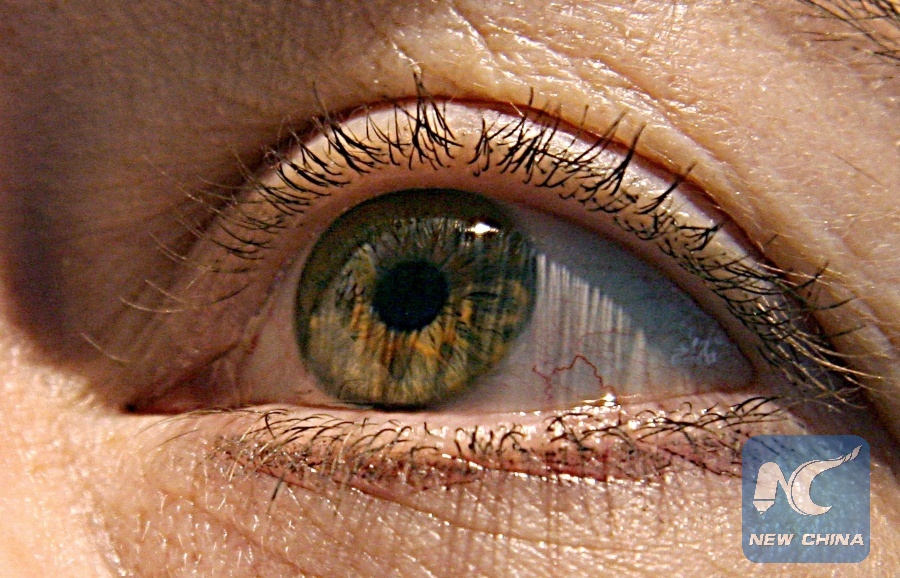
This file photo taken on April 24, 2007 shows a cloes-up of a woman's eye. (AFP Photo)
WASHINGTON, May 30 (Xinhua) -- The U.S. Food and Drug Administration (FDA) on Wednesday approved the first stand-alone prosthetic iris in the United States.
The surgically implanted device can be used to treat adults and children whose iris is completely missing or damaged due to a congenital condition called aniridia or other damage to the eye.
"Patients with iris defects may experience severe vision problems, as well as dissatisfaction with the appearance of their eye," said Malvina Eydelman, director of the Division of Ophthalmic, and Ear, Nose and Throat Devices at the FDA's Center for Devices and Radiological Health.
"Today's approval of the first artificial iris provides a novel method to treat iris defects that reduces sensitivity to bright light and glare. It also improves the cosmetic appearance of the eye in patients with aniridia," said Eydelman.
Congenital aniridia is a genetic disorder in which the iris is completely or partially absent, and those with aniridia have sensitivity to light and other severe vision problems. The iris, the colored part of the eye around the pupil, controls the amount of light entering the eye.
The artificial iris called CustomFlex Artificial Iris is also indicated to treat iris defects due to other reasons or conditions, such as albinism, traumatic injury or surgical removal due to melanoma, according to FDA.
The CustomFlex Artificial Iris is made of thin, foldable medical-grade silicone and is custom-sized and colored for each individual patient.
A surgeon can make a small incision, insert the device under the incision, unfold it and smooth out the edges using surgical instruments. The prosthetic iris is held in place by the anatomical structures of the eye or, if needed, by sutures.
Its safety and effectiveness was demonstrated primarily in a non-randomized clinical trial of 389 adult and pediatric patients with aniridia or other iris defects, according to FDA.
More than 70 percent of patients reported significant decreases in light sensitivity and glare as well as an improvement in health-related quality of life following the procedure. In addition, 94 percent of patients were satisfied with the artificial iris' appearance.

